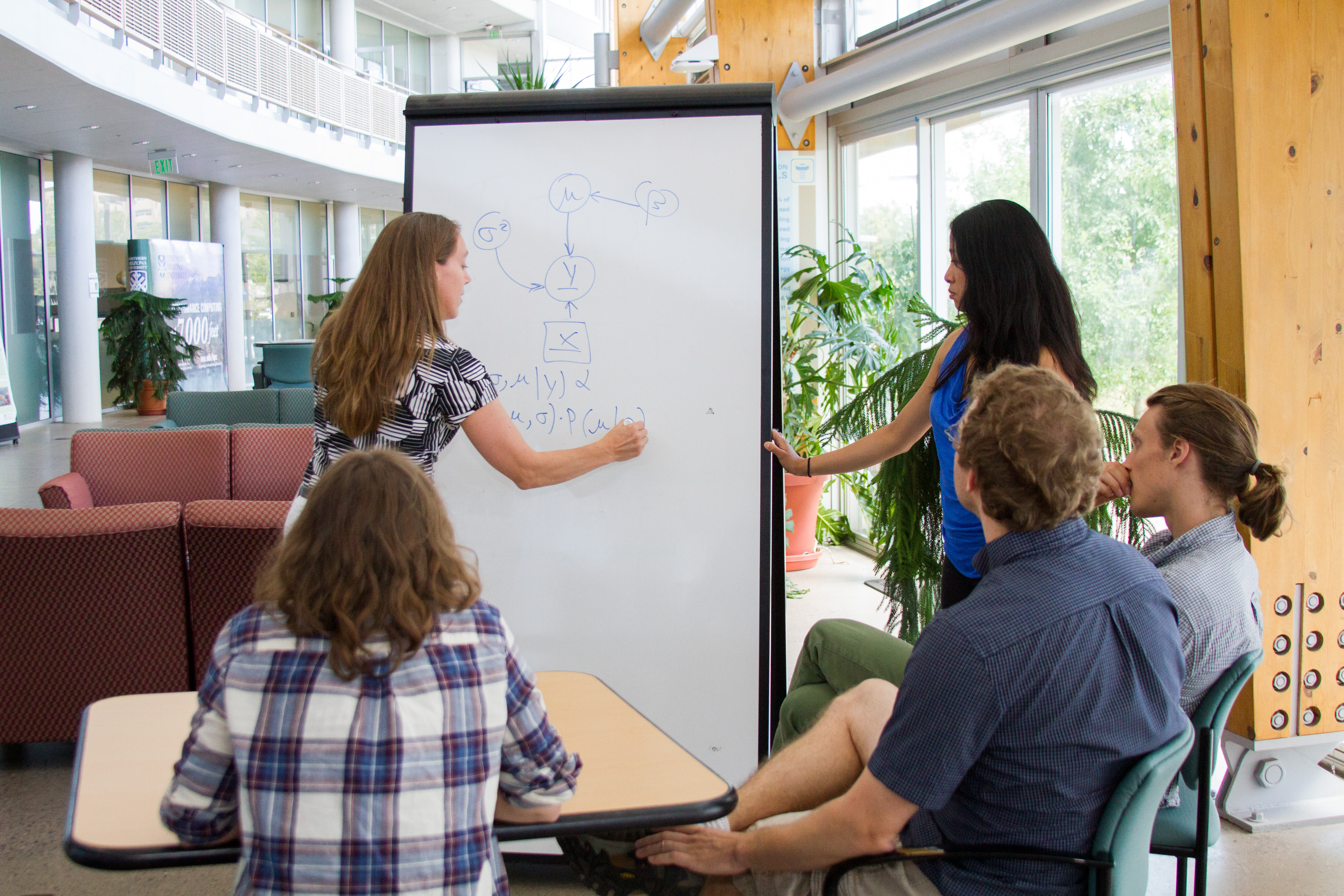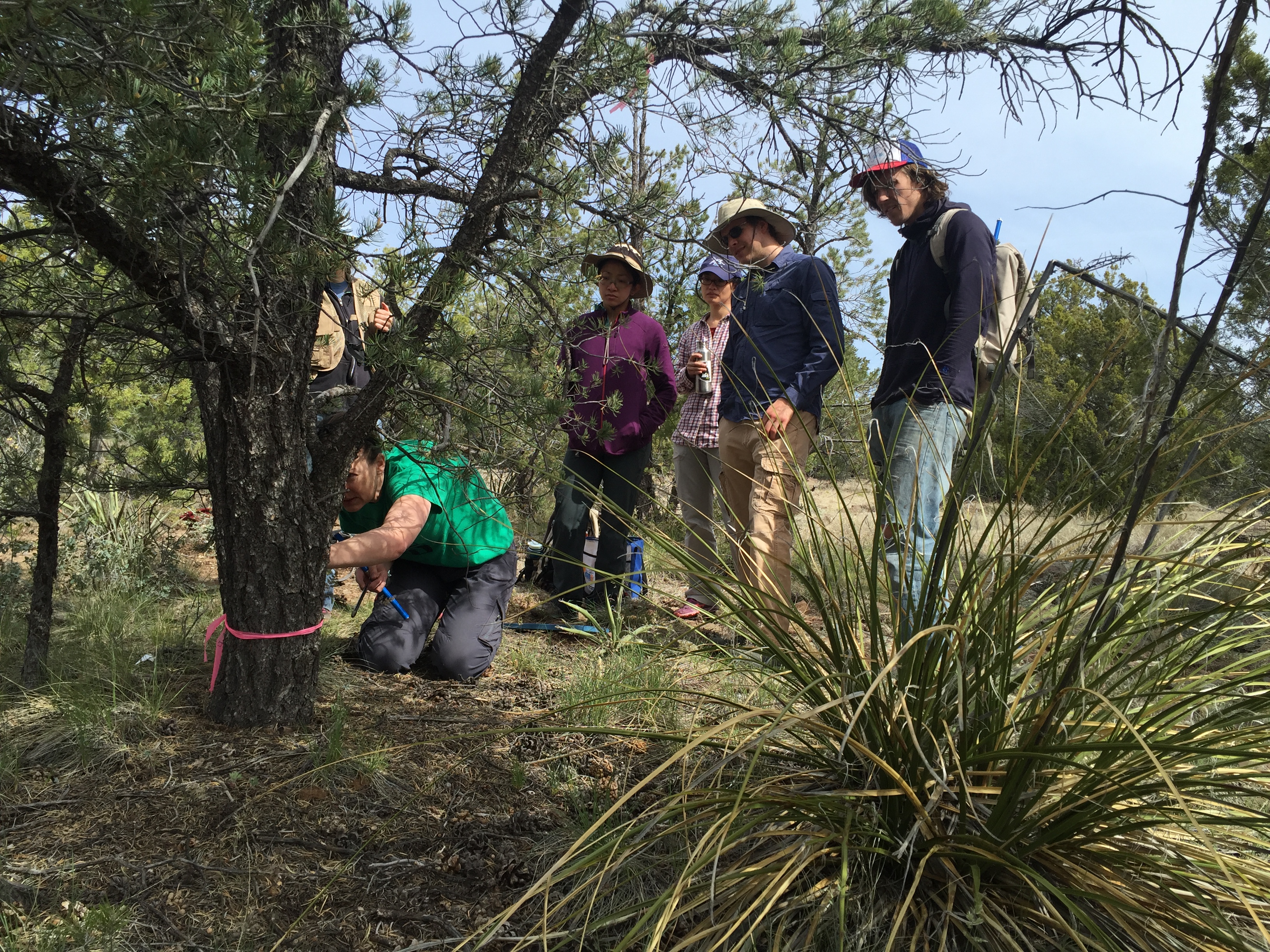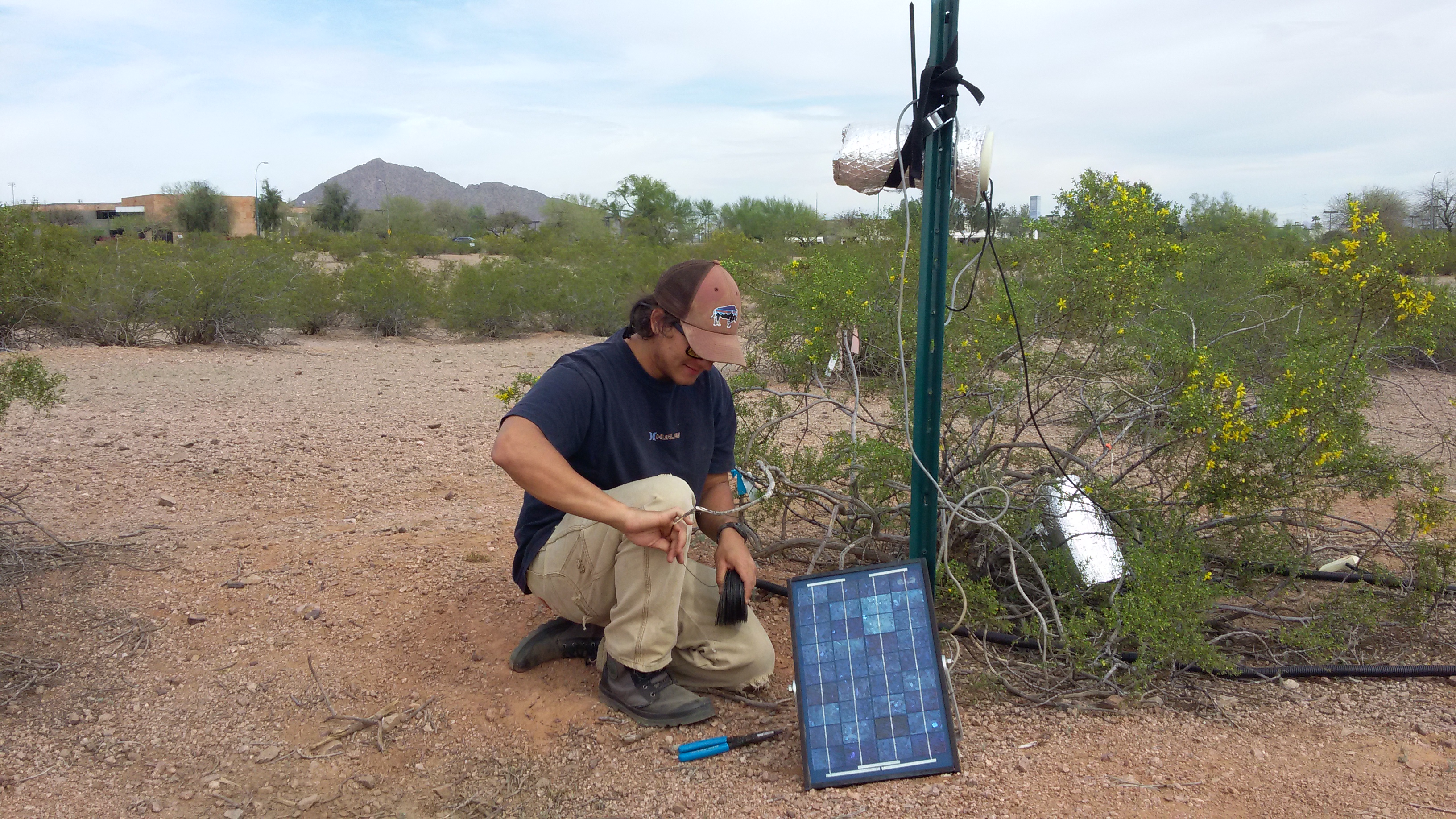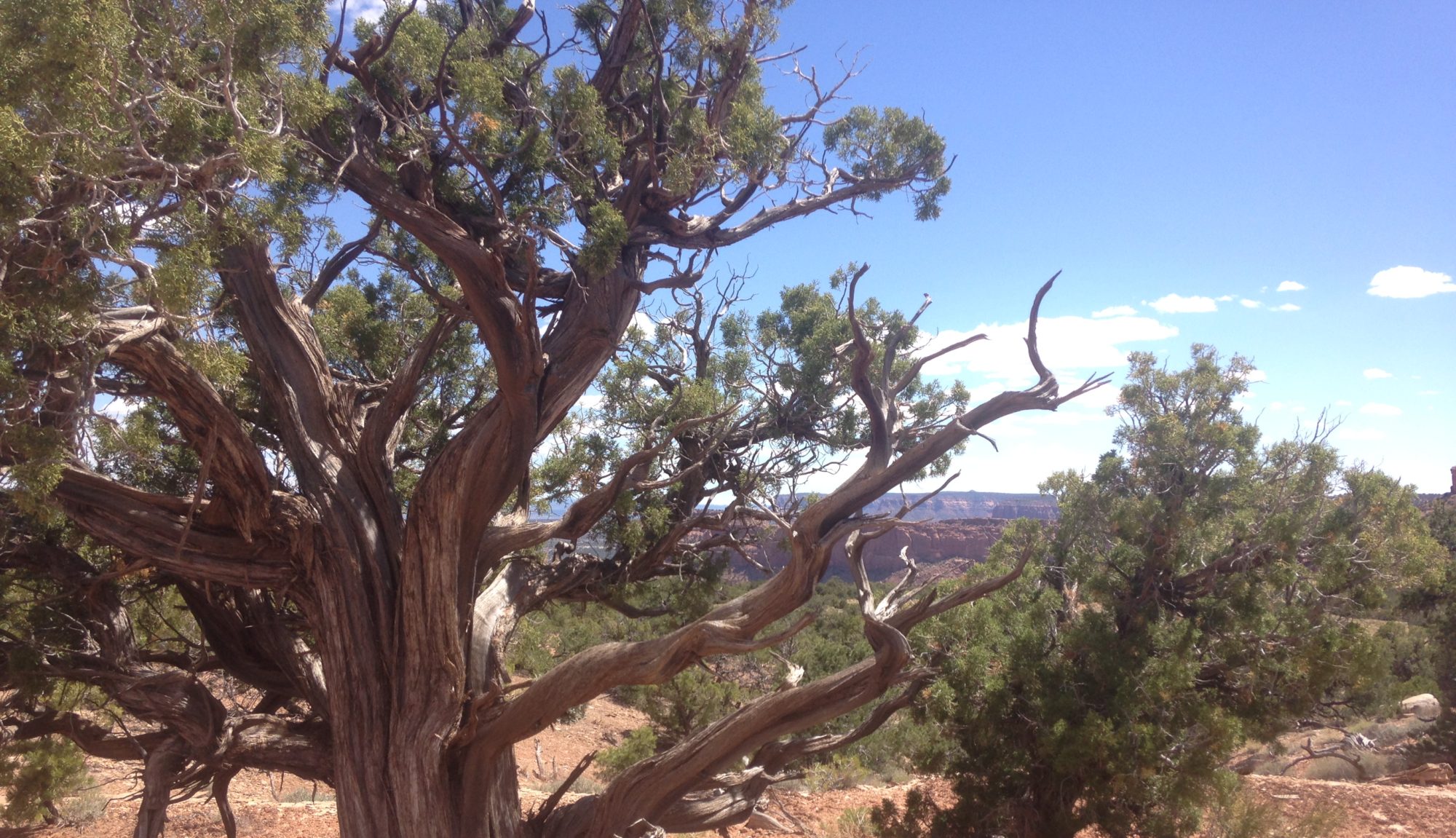Graduate Students:
 Join the PhD program in Ecological and Environmental Informatics (EEI) at Northern Arizona University! Students interested in pursuing a graduate degree under the direction of Dr. Kiona Ogle related to any of the research themes in the Ogle Lab are encouraged to contact Dr. Ogle via email at Kiona [DOT] Ogle [AT] nau [DOT] edu. Dr. Ogle is particularly interested in taking on students with strong quantitative backgrounds, or that have the ability and desire to develop quantitative and computing skills, and that wish to use these skills to address important questions in plant or ecosystem ecology. Students keen on integrating mathematical, simulation, or statistical modeling with empirical or experimental studies to address questions related to one of the Ogle Lab’s research themes should contact Dr. Ogle, and prospective students with compatible interests are encouraged to learn more about the graduate programs at NAU and/or to apply for graduate study through the School of Informatics, Computing, and Cyber Systems (see the EEI PhD program) or the Department of Biological Sciences (see the Biology PhD program).
Join the PhD program in Ecological and Environmental Informatics (EEI) at Northern Arizona University! Students interested in pursuing a graduate degree under the direction of Dr. Kiona Ogle related to any of the research themes in the Ogle Lab are encouraged to contact Dr. Ogle via email at Kiona [DOT] Ogle [AT] nau [DOT] edu. Dr. Ogle is particularly interested in taking on students with strong quantitative backgrounds, or that have the ability and desire to develop quantitative and computing skills, and that wish to use these skills to address important questions in plant or ecosystem ecology. Students keen on integrating mathematical, simulation, or statistical modeling with empirical or experimental studies to address questions related to one of the Ogle Lab’s research themes should contact Dr. Ogle, and prospective students with compatible interests are encouraged to learn more about the graduate programs at NAU and/or to apply for graduate study through the School of Informatics, Computing, and Cyber Systems (see the EEI PhD program) or the Department of Biological Sciences (see the Biology PhD program).

Undergraduate Students:
The Ogle Lab is frequently looking for NAU undergraduates to help with a variety of ecology or computing related projects. Students often participate in a range of activities that involve anything from data entry to working with large databases to field work to laboratory analyses of field samples. Interested students should contact Dr. Kiona Ogle via email at Kiona [DOT] Ogle [AT] nau [DOT] edu.

